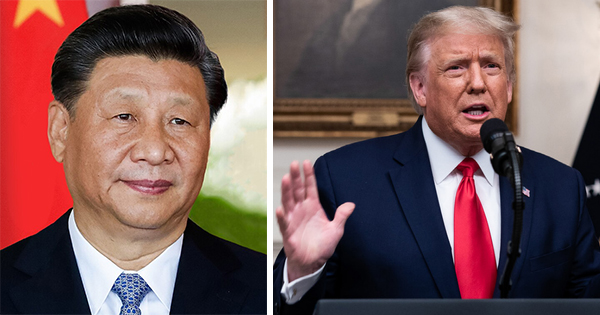
Nationwide — China vowed on Tuesday to “fight to the end” and respond with firm countermeasures after former President Donald Trump threatened to impose an additional 50% tariff on Chinese imports. The Chinese Commerce Ministry strongly condemned the proposed tariffs, calling them baseless and an example of “unilateral bullying” by the United States.According to CNBC, the ministry emphasized that China’s actions were lawful and intended to protect its sovereignty and development interests, while also maintaining stability in the global trade system. It warned that further retaliation could follow as tensions continue to escalate between the world’s two largest economies.
Trump’s latest threat, announced on Truth Social, stated that if China didn’t roll back a recent 34% hike in tariffs by April 8, 2025, the U.S. would respond the next day with a new 50% tariff on Chinese goods. These would be in addition to previous tariffs, pushing the total up to a staggering 104%. Trump also said any ongoing trade talks would be terminated immediately.
The announcement triggered fears of a renewed global trade war, as markets from Tokyo to Wall Street wobbled in response. Economists warned the higher tariffs could drive up prices for U.S. consumers and encourage China to flood international markets with low-cost goods, potentially shifting its trade focus to the European Union and other regions.
Despite growing uncertainty, many Chinese citizens expressed confidence in their country’s resilience. “Trump just says whatever benefits him,” said Wu Qi, a 37-year-old construction worker in Beijing. Others, like Paul Wang, a 30-year-old accessories exporter, are already looking to Europe to replace lost U.S. business. Meanwhile, importers like Jessi Huang fear the tariffs could force them to lay off staff or shut down entirely.
Experts say China still has numerous ways to retaliate, including halting cooperation on fentanyl control, tightening quotas on U.S. agricultural goods, or targeting American law and finance firms operating in China. In 2024, the U.S. traded $582 billion in goods with China, with a trade deficit of up to $295 billion.
In Hong Kong, Chief Executive John Lee echoed Beijing’s criticism, labeling the tariffs as “ruthless bullying.” He pledged to deepen economic ties with mainland China, pursue more free trade agreements, and help local companies adapt to the growing uncertainty brought on by the U.S. trade measures.
